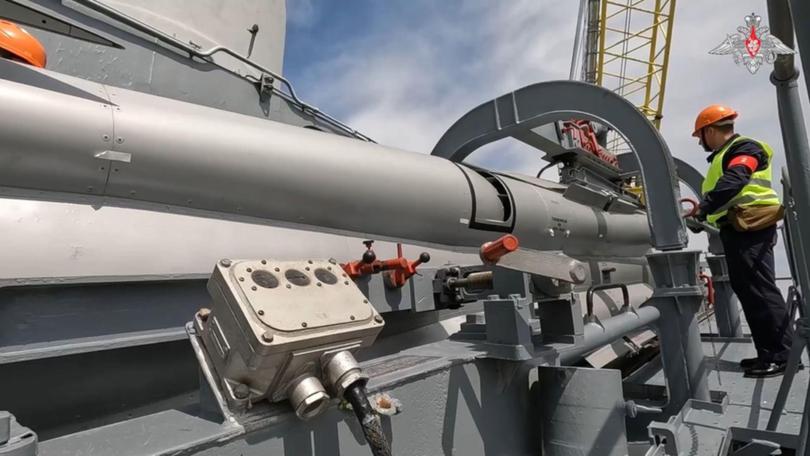Thousands of active nuclear warheads are ready to fire worldwide and new report says Beijing leads the way
A Stockholm-based watchdog says more operational nuclear warheads are being prepared every year.

Nuclear weapons states are strengthening their arsenals in the face of numerous conflicts worldwide, according to a leading Swedish think tank on conflict and defence.
A new report by the Stockholm International Peace Research Institute (SIPRI), says the number of operational nuclear warheads is steadily rising.
“While the global total of nuclear warheads continues to fall as Cold War-era weapons are gradually dismantled, regrettably we continue to see year-on-year increases in the number of operational nuclear warheads,” said SIPRI director Dan Smith.
Sign up to The Nightly's newsletters.
Get the first look at the digital newspaper, curated daily stories and breaking headlines delivered to your inbox.
By continuing you agree to our Terms and Privacy Policy.“This trend seems likely to continue and probably accelerate in the coming years and is extremely concerning.”
The number of nuclear weapons in development is also on the rise, as states bank on nuclear deterrence, the report said.
Of the estimated total of 12,121 warheads recorded worldwide in January, around 9,585 were part of military stockpiles for potential use.
Around 3,904 of these warheads were mounted on missiles and aircraft - 60 more than in the same month a year earlier. According to the report, the rest were kept in centralised storage facilities.
For decades, the global number of nuclear weapons has been steadily declining. However, the decline is mainly due to the fact that discarded warheads are gradually being dismantled by Russia and the United States following the Cold War.
That means peace researchers look not only at the estimated total stockpiles, but also at the deployable arsenals. According to SIPRI, nine states have nuclear weapons: in addition to Russia and the US, these are China, France and Britain, as well as Pakistan, India, Israel and North Korea.
Combined, Washington and Moscow own some 90 per cent of nuclear warheads worldwide.
Around 2,100 of the operational warheads were kept on ballistic missiles on high alert, mainly by the US and Russia, according to the SIPRI report.
For the first time, however, China is also said to have some warheads on high alert.
Beijing’s nuclear arsenal rose from 410 warheads in January 2023 to 500 in January 2024.
Meanwhile, “China is expanding its nuclear arsenal faster than any other country,” said SIPRI expert Hans Kristensen.
However, Kristensen noted that “in nearly all of the nuclear-armed states there are either plans or a significant push to increase nuclear forces.”
The SIPRI experts said that both the US and Russia have become less transparent regarding their nuclear arsenals following Moscow’s full-scale invasion of Ukraine in February 2022, while transparency was also down in other nuclear weapons states.
Nuclear diplomacy has suffered several setbacks since the Russian invasion of Ukraine, according to the peace researchers.
“We have not seen nuclear weapons playing such a prominent role in international relations since the cold war,” said Wilfred Wan, director of SIPRI’s Weapons of Mass Destruction Program.
Russian President Vladimir Putin suspended the New START disarmament treaty - the only major nuclear arms control treaty left with the US - in February 2023.
Talks on a successor agreement to the treaty, which expires in 2026, have also been put on hold.
In November, Russia withdrew its ratification of the Comprehensive Nuclear-Test-Ban Treaty (CTBT), citing an “imbalance” with the US, which had not ratified the treaty since it was opened for signature in 1996.
Russia last announced tactical nuclear weapons exercises near the Ukrainian border in May.
